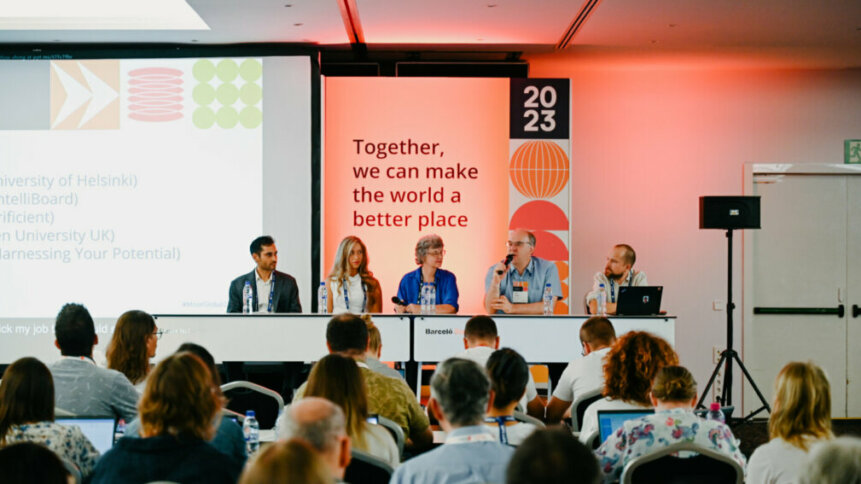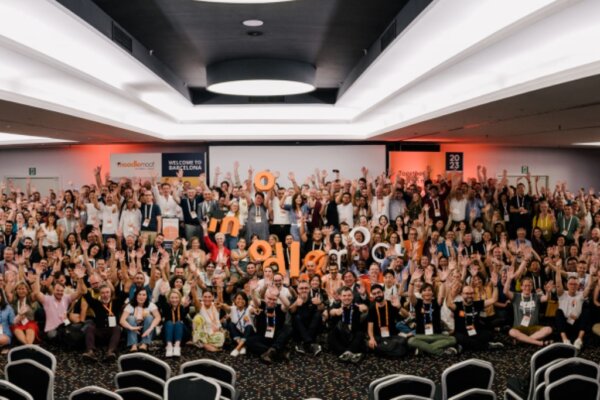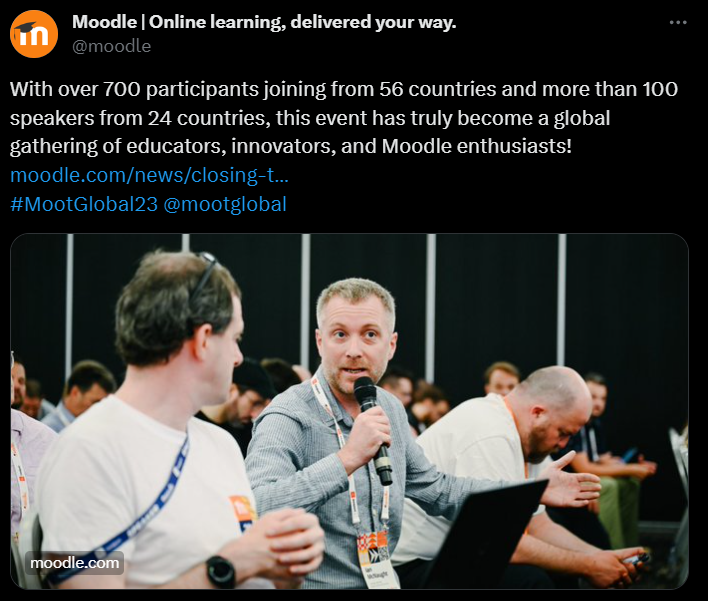How is Moodle advancing the AI education debate?

- What is Moodle and how is it engaging with the AI education debate?
- The themes for the MoodleMoot Global 2023 included the impact of AI on both education and work.
- Moodle’s 4.3 release will likely fix more than 300 bugs and add a host of new features.
In recent years, technology has enhanced the world of higher education – whether that world wanted it to or not. Given the wide availability of AI tools for both teachers and students though, more needs to be done to help a range of players in this industry navigate the challenges of technologically-enhanced teaching in the modern era.
A new UNESCO survey of over 450 schools and universities around the world found that fewer than 10% have developed institutional policies or formal guidance concerning the use of generative AI applications.
Moodle, however, is pushing the AI conversation forward — especially at this year’s MoodleMoot Global in Barcelona, Spain. Over 700 participants from 56 countries and more than 100 speakers from 24 countries took part in the conference.

Moodlers of the world, unite!
“It’s a place for the community to meet together, learn about what the other people are doing, [and] learn about what Moodle is doing,” event organizer Diego Fabra explained. “They can meet people from the [headquarters and] ask them questions directly. This is something that doesn’t happen in other conferences.”
What is Moodle?
Moodle’s open-source learning management system (LMS) is free to download, modify and share with others. It bills itself as the “ultimate expression of the values that unite our community of developers, system administrators, educators, and learners.”
Moodle is actually the world’s most popular LMS, so it has something to back up such press office language. It is used by any number of schools, universities, non-profits and companies to manage their education and training needs. Portsmouth Hospitals University NHS Trust, responsible for running the Queen Alexandra Hospital in Portsmouth, Hampshire, has turned to Titus Learning — a certified, premium Moodle partner — to develop a custom Moodle Workplace solution.
Core teams at Moodle HQ coordinate with over 1000 developers, and the Moodle LMS also has an ever-growing community of Certified Partners, developers, system administrators, educators and learners who write new features, fix bugs, update documentation, and share resources and ideas to constantly evolve the platform.
Since Moodle is modular, users can search and download official plugins from the Moodle Plugin Database. They allow users to extend and customize the LMS’s functions beyond what Moodle has envisioned. This flexibility is what makes Moodle collaborative and community-enhanced.
Moodle’s 4.3 release is set to launch on October 9 and will likely contain more than 300 bug fixes, improvements and new features.
Those new features include an “In Course” communication option that will empower better collaboration. The matrix messaging system will also make working with other messaging systems like Slack and Teams relatively seamless.
The potential of artificial intelligence in eLearning
MoodleMoot Global 2023 covered a wide range of interests and expertise, including:
- The use of augmented and virtual reality in education and training
- How AI is changing education and the workplace
- Building core competencies with Moodle
- Addressing inclusivity and equity with Moodle courses
- Soft skills revolution — strengthening learners’ critical thinking, interpersonal & creative skills
- Using Moodle to support Science, Technology, Engineering, and Mathematics (STEM) delivery
On the morning of Day Three at MoodleMoot Global 2023, a panel discussion explored the transformative power of AI in education and workplace learning. The session, titled “How artificial intelligence is changing education and the workplace” was hosted by Brett Dalto, Head of Education Solutions at Moodle HQ.
It featured a host of experts, including Heikki Wilenius from the University of Helsinki, Tim Hunt from The Open University UK, Elizabeth Dalton from IntelliBoard, Rajnish Kumar from Verificient, and Meghan Mencer of Harnessing Your Potential.
Dalto posed three questions to the panel: are our educational institutions equipped or prepared to address potential AI? How will regulating AI impact the education industry? and how will AI have the greatest positive impact on education?

Moodlin’ along.
Discussing bias in AI, Dalton suggested that we need to broaden our data to be inclusive of all demographics for AI to be unbiased. Conversely, Kumar from Verificient argued that we should consider the intention behind building an AI system rather than focusing on whether AI is biased.
The panelists also raised thought-provoking questions. Hunt, for example, questioned whether we understand the implications of AI well enough to draft effective legislation. The conversation also touched on how current and future generations will adapt to the growing impact of AI in society.
MoodleMoot 2023 covered a lot of ground involved in the AI education debate as it stands in 2023. How many of the issues will be resolved by the time of MoodleMoot 2024? Watch this space.










